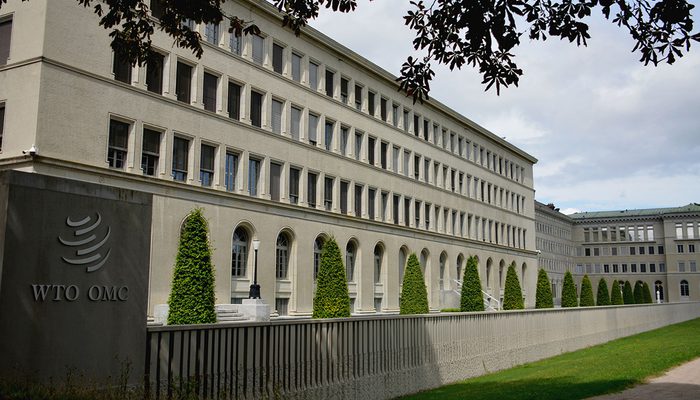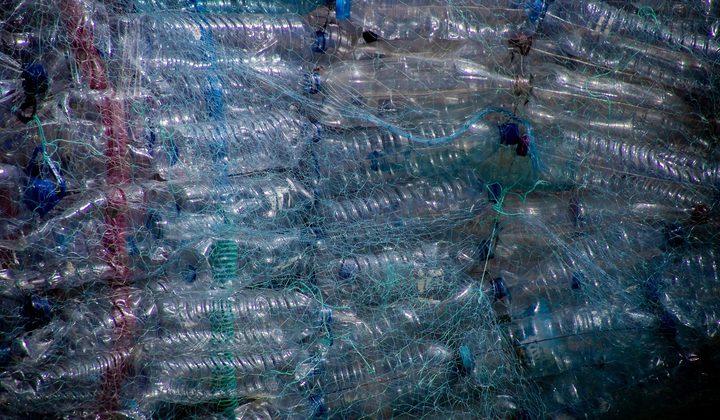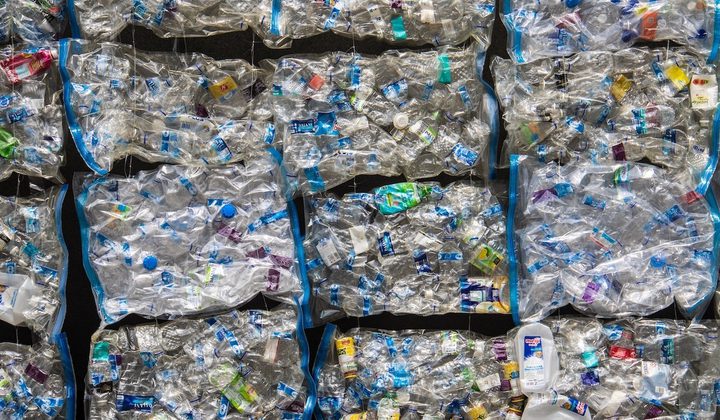TESS was pleased to contribute to the WTO Dialogue on Plastic Pollution (DPP) Pre-Plenary meeting on 13 June 2024. At the meeting, we provided comments on proposed areas of focus in the three workstreams of the 2024 work plan.
As the DPP gears towards achieving concrete, pragmatic, and effective outcomes at the latest by the Fourteenth WTO Ministerial Conference (MC14), as noted in the MC13 Ministerial Statement, the initiative’s coordinators presented at the 13 June meeting the proposed focus areas for the three workstreams of the 2024 work plan. Adopted in 2022 to advance technical work and discussions, the DPP workstreams are: cross-cutting issues, reduction to tackle plastic pollution, and promoting trade to tackle plastic pollution.
The coordinators’ proposed focus for the workstream on cross-cutting issues is on “enhancing support for major international processes combating plastics pollution,” particularly the global plastics treaty negotiations and the World Custom Organization’s Harmonized System (HS) reform process. On reduction to tackle plastic pollution, the proposed focus includes “taking an inventory of members' trade-related plastic measures (TrPMs), and identifying best practices and opportunities for harmonizing TrPMs, with a focus on single-use plastics.” The suggested focus for promoting trade to tackle plastic pollution includes “facilitating access to technologies and services, including for waste management, and levelling the playing field for non-plastic substitutes and alternatives, starting with standards.”
A questionnaire will be circulated among DPP members and bilateral consultations held in mid-July with the aim of reaching consensus on a final list of focus areas in each workstream to guide the initiative’s work towards MC14.
In our intervention in the workstream on cross-cutting issues, we were pleased to note that the value and uniqueness of the DPP was recognized in the global plastics treaty negotiation process—where a number of members of the Intergovernmental Negotiating Committee (INC) highlighted the work of the DPP—including the role it can play in supporting countries to reaching concrete and pragmatic outcomes with a broad diversity of members. We also highlighted that at INC-4, TESS organized a side event on opportunities for cooperation on trade and the INC, which sought to highlight for delegates insights from the DPP and national experiences.
On reduction, we welcomed the informal report by the WTO Secretariat on the definition of single-use plastic products in trade-related plastic measures (TrPMs) found in the DPP survey as well as the ongoing collaboration between the WTO and WCO secretariats to better identify a range of problematic plastics, including single-use plastic products, within the HS nomenclature. We also suggested a number of traded-related measures relevant to single-use plastic products that DPP members could consider.
In the workstream on promoting trade to tackle plastic pollution, our intervention highlighted a few key options for promoting trade in environmentally sound and safe waste management technologies and services that could be pursued in the DPP. Drawn from a forthcoming TESS policy brief on this topic, we highlighted a set of specific opportunities for cooperation and collective action to promote the diffusion of environmentally sound and safe plastic waste management technologies. We noted that these efforts would benefit from discussions underway in a range of WTO bodies.
The meeting welcomed Mongolia and Mozambique as new members of the Dialogue, bringing the number of co-sponsors to 81, nearly half of the WTO membership
You can read a WTO news item summarizing the DPP Pre-Plenary meeting and also download the MC13 Ministerial Statement and the 2024 work plan.
We encourage you to read our statement in full.
TESS at the World Trade Organization
This work is part of our initiative supporting inclusive cooperation
on trade, environment, and sustainable development at the WTO.




